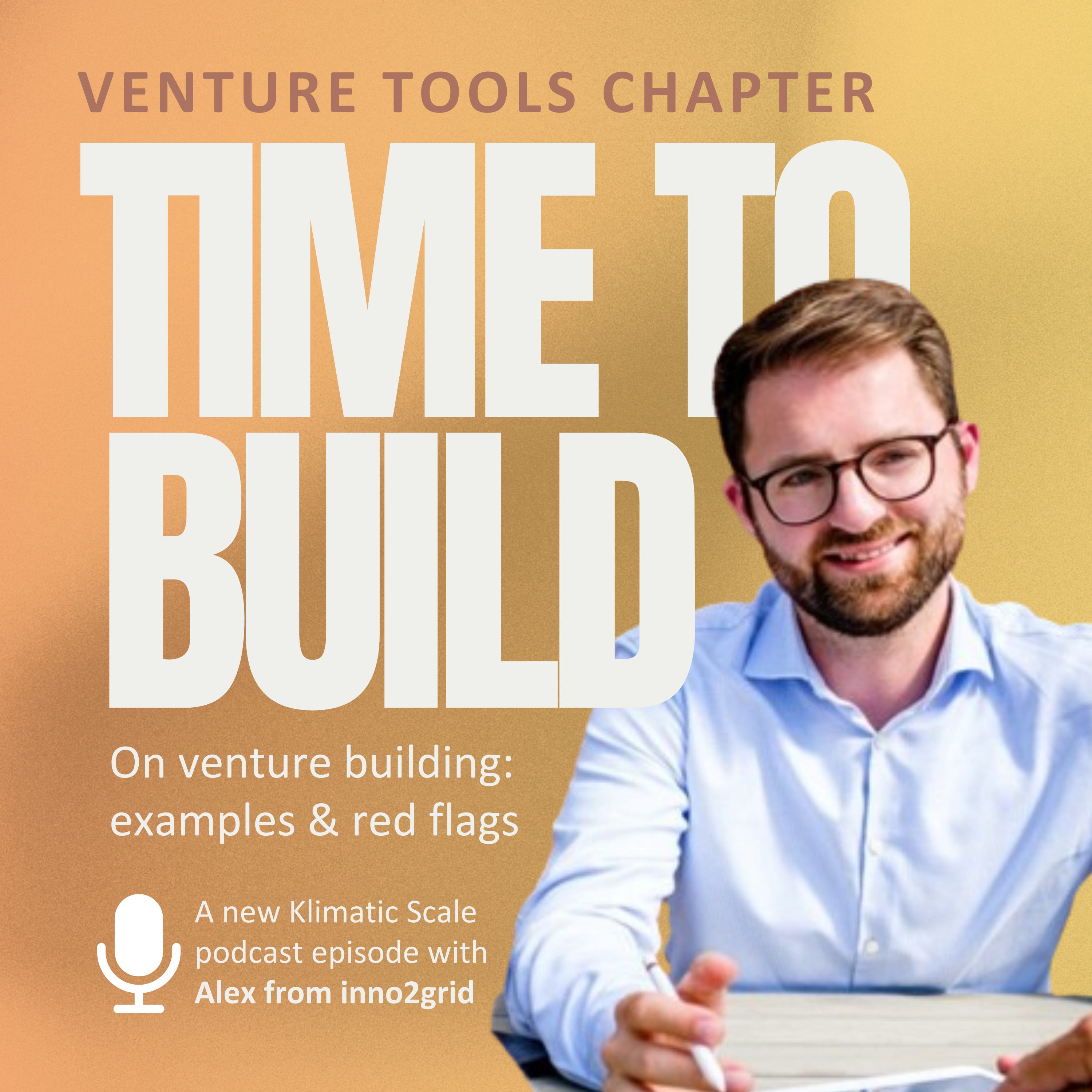Klimatic Scale

Klimatic Scale
Podcast Description
We have all the technologies to reach Net Zero. So why are climate and sustainability technologies not scaling?
Join award-winning ecosystem builders Aneri Pradhan and Dash Markova as they discuss the challenge with entrepreneurs, real estate and construction leaders, and corporate and city innovation teams to understand the scaling challenge and what we can actually do about it. klimaticgroup.substack.com
Podcast Insights
Content Themes
The podcast centers on the challenges facing the scaling of climate and sustainability technologies, featuring content that explores topics such as venture clienting, innovation theater, and startup collaboration. Episode highlights include discussions on the effectiveness of startup prizes, the importance of building trust in corporate relationships, and the concept of venture clienting as a new approach in the European market.

Klimatic Scale is a show about commercial scale in energy, built environment, and mobility innovation – the sectors core towards reaching net zero goals in Europe.
So why are we stalling?
Join award-winning ecosystem builders Aneri and Dash as they discuss best ways to scale with industry leaders, entrepreneurs, and experts. We cover:
1. Success stories and what works from pilot to scale
2. Specific industry cases & success stories, dissected and analyzed
3. What works best for speedy commercialization to get to net zero
In this episode of Klimatic Scale, Dash speaks with Alexander Soechtig, COO of inno2grid, a Berlin-based venture builder operating at the intersection of energy, mobility, and built environment.
Drawing on more than a decade of hands-on experience, Alexander breaks down how venture building actually works in practice: when it makes sense to build a venture outside the core business, when to integrate early, and when to consciously not build at all. The conversation describes concrete decision criteria, real failure signals, and examples of ventures that successfully made it to market.
This is the first of four episodes in the Venture Tools Chapter of Klimatic Scale, where we focus on venture clienting and venture building as the most practical innovation toolsfor climate-critical industries to move beyond pilots and into real-world impact. Both corporate and startup listeners can take valuable insights from real cases.
1:00 Alex’s path into venture building3:40 When venture building is the right tool (and when it’s not)6:30 The secret ingredient of energy ventures9:50 Case deep dive14:25 Kill your darlings: which ideas should not become ventures18:20 Red flags and rookie mistakes in corporate venture building22:27 Where the money comes from26:50 What success looks like and more examples
Connect with Alexif you want to continue the conversation!
This is a public episode. If you would like to discuss this with other subscribers or get access to bonus episodes, visit klimaticgroup.substack.com

Disclaimer
This podcast’s information is provided for general reference and was obtained from publicly accessible sources. The Podcast Collaborative neither produces nor verifies the content, accuracy, or suitability of this podcast. Views and opinions belong solely to the podcast creators and guests.
For a complete disclaimer, please see our Full Disclaimer on the archive page. The Podcast Collaborative bears no responsibility for the podcast’s themes, language, or overall content. Listener discretion is advised. Read our Terms of Use and Privacy Policy for more details.